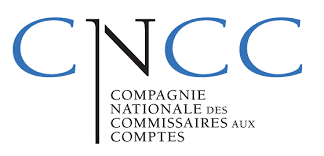
Erotic literature has been around for centuries, from the steamy tales of ancient Greece to free adult content the racier sections of modern-day bookstores. But what is it about this genre that continues to captivate readers? And how does it affect our relationships and intimacy?
First, let’s define what we mean by erotic literature. This can include everything from classic novels with explicit sexual scenes to contemporary « +18 stories » and « erotic stories » that are specifically designed to arouse the reader. The common thread is that these works explore sexual desire and fantasy in a way that is intended to be both stimulating and thought-provoking.
One of the key ways that erotic literature can impact our relationships is by helping us to explore our own desires and fantasies in a safe and private way. Reading about sexual experiences that are outside of our own comfort zones can help us to expand our understanding of what is possible and what we might find enjoyable. This can lead to more open and honest conversations with our partners about our desires, which can in turn lead to deeper intimacy and connection.
Erotic literature can also help to spark creativity and imagination in the bedroom. By reading about new and exciting sexual scenarios, we can be inspired to try new things with our partners and to bring a sense of playfulness and adventure to our sexual relationships.
Of course, it’s important to remember that erotic literature is fiction, and it’s not always an accurate reflection of real-life sexual experiences. It’s also important to be mindful of our own boundaries and to communicate openly with our partners about what we are and aren’t comfortable with.
Another potential benefit of erotic literature is that it can help to reduce shame and stigma around sexuality. By normalizing and celebrating sexual desire, these works can help to break down some of the barriers that prevent us from talking openly and honestly about sex. This can be especially important for people who may have grown up in environments where sexuality was viewed as taboo or shameful.
However, it’s worth noting that not all erotic literature is created equal. Some works may perpetuate harmful stereotypes or objectify certain groups of people, which can contribute to a culture of sexual entitlement and exploitation. It’s important to be critical of the media we consume and to seek out works that are respectful, consensual, and empowering.
In conclusion, erotic literature can be a powerful tool for exploring our own desires, sparking creativity and imagination, and reducing shame and stigma around sexuality. By reading works that are respectful, consensual, and empowering, we can deepen our understanding of ourselves and our partners, and build stronger, more intimate relationships.
As with any form of media, it’s important to be mindful of our own boundaries and to communicate openly and honestly with our partners about what we are and aren’t comfortable with. By doing so, we can create a culture of consent, respect, and mutual pleasure that benefits us all.






